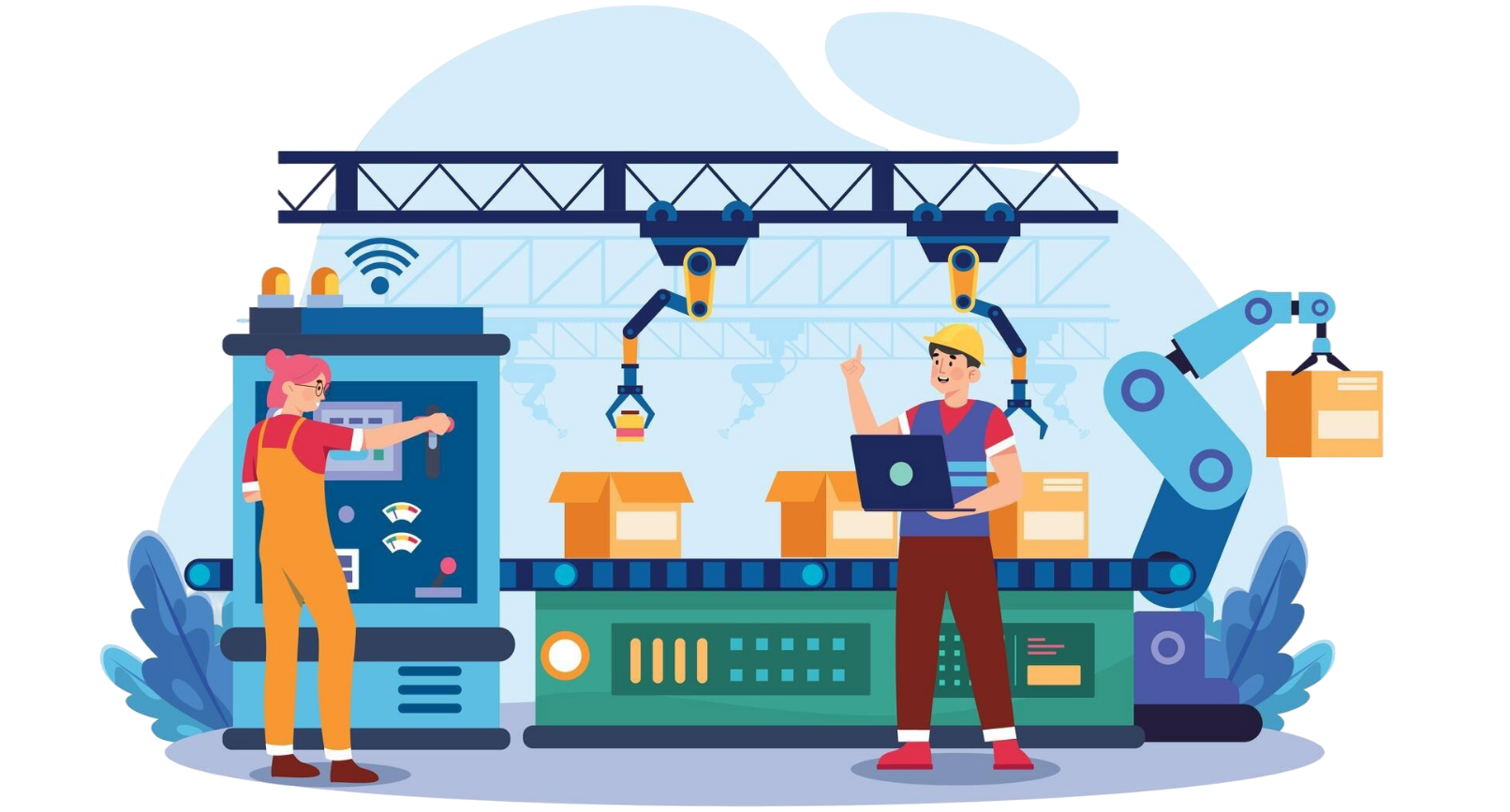Ready to revolutionize your data journey with Infoveave?
Recent Blogs
- How Data Automation And Data Engineering Are Transforming Healthcare
- How Data Automation Is Quietly Reworking Retail
- How Data Automation and Data Engineering Are Revolutionizing the Telecom Industry
- How Data Automation is Powering the Retail Energy Industry
- How Data Automation and Data Engineering Are Revolutionizing the Automotive Industry
How Data Automation Tools are Transforming Manufacturing
The manufacturing sector is undergoing a remarkable transformation powered by data automation and intelligent process automation tools. Today’s factories—facing pressure for higher product quality, global competition, and rapidly evolving technologies—are harnessing data to transform operations, simplify workflows, and overcome traditional inefficiencies. In this guide, we will uncover how automation platforms are reshaping manufacturing, what these technologies enable, and how manufacturing leaders can leverage data automation to achieve powerful results.

What is Data Automation in Manufacturing?
Data automation in manufacturing is the use of technology to automatically collect, process, store, analyze, and manage data with minimal (or even zero) human intervention. By automating repetitive data tasks—such as monitoring inventory, collecting sensor readings, or updating production statuses—manufacturers save time, reduce human error, and dramatically improve responsiveness to both market demands and operational challenges. These solutions free up human talent for innovation and support real-time, informed decision-making across every stage of the manufacturing lifecycle.
Key Features of Data Automation Tools & Platforms
Modern data automation platforms serve as the digital backbone of manufacturing transformation:
-
No-code/Low-code workflows: Empower business and factory teams to automate processes without needing IT specialists.
-
Integration with legacy and modern systems: Seamlessly connect to MES, ERP, IoT sensor networks, legacy machines, and cloud apps—enabling unified data flow.
-
Workflow orchestration: Schedule, monitor, and manage multi-step processes—such as production runs or supply chain updates—with reliability and transparency.
-
Data validation and standardization: Clean and unify data from disparate sources for analytics, reporting, and compliance tracking.
-
Security and compliance features: Audit trails, access controls, and encryption are built in to protect sensitive production and business data.
How Data Automation is Powering the Manufacturing Industry
Automated Inventory Management
Manual inventory management is inefficient and prone to costly errors. Intelligent automation tracks material usage in real time, updates inventory records, and triggers replenishment when stock runs low. By integrating AI-driven demand forecasting, manufacturers avoid both overstock and shortages, ensuring production continuity and working capital optimization. Benefits include:
- Real-time inventory visibility and accuracy
- Reduced manual data entry and error rates
- Improved forecasting and smarter purchasing
Production Line Quality Control
Maintaining high product quality is essential—but manual inspections are slow and inconsistent. Automated visual inspection systems, driven by AI and machine learning, continuously scan products for defects during production. Data collected from sensors, cameras, and quality checkpoints is fed back in real time, allowing immediate adjustments to maintain quality standards. Benefits:
- Faster defect detection and prevention
- Consistent quality across output
- Reduction in costly recalls and rework
Supply Chain and Vendor Management
Complex supply chains can easily break down without timely, accurate data. Automation syncs procurement, vendor performance tracking, and order processing—cutting manual paperwork, improving supplier communication, and enabling real-time risk management. Manufacturers can automatically compare supplier quotes, validate invoices, and respond swiftly to disruptions using advanced data integration. Benefits:
- Transparent supply chain operations
- Streamlined ordering and fulfillment
- Proactive risk management in sourcing
Predictive Maintenance
Unplanned machine downtime can halt production. Data automation aggregates real-time machine sensor readings (temperature, vibration, pressure, etc.), analyzes them with AI models, and alerts teams to impending equipment issues before failures occur. Predictive maintenance extends equipment life, reduces maintenance costs, and maximizes uptime.
- Reduced maintenance costs and line stoppages
- Prolonged equipment lifespan
- Increased overall reliability of operations
Process Optimization
By centralizing and automating the collection of production data from all stages of manufacturing, organizations unlock insights for process improvement. Advanced analytics and simulation models help optimize production schedules, adapt to demand shifts, and reduce bottlenecks or waste.
- Higher throughput and efficiency
- Data-driven process enhancements
- Agility to respond to changing market needs
Why Manufacturing Leaders are Investing in Data Automation
The business impact is immediate and long-term:
- Accelerated operations: Automated workflows cut lead times across inventory, production, and supply chain.
- Improved accuracy and compliance: Standardized processes and audit-ready data streamline regulatory and safety compliance.
- Superior product quality: Automated quality monitoring and feedback loops catch errors early and enable continuous improvement.
- Greater operational efficiency: Reduces manual effort, paperwork, and resource wastage, lowering total costs.
- Enhanced scalability: Automation easily scales with business growth—adding new lines, locations, or suppliers without heavy new staffing needs.
- Readiness for the future: Connected data platforms prepare manufacturers to embrace AI, IoT, and the next wave of digital manufacturing innovations.
The Future: Automation as a Competitive Differentiator
Manufacturing is only at the dawn of a data automation revolution. As product customization, market volatility, and supply chain complexity intensify, data automation platforms will become ever more essential—not just to optimize cost and enhance quality but to create agility and resilience. Manufacturers who invest in platform-centric automation will be best positioned to unlock new levels of productivity, innovation, and sustainable growth.
Infoveave’s Advantage for Manufacturing
Infoveave is uniquely positioned to help manufacturers embrace the future of data automation. Our GenAI-powered platform seamlessly bridges legacy machinery, manufacturing systems, and modern cloud solutions, empowering both IT and shop-floor teams to design, deploy, and orchestrate end-to-end data-driven workflows—without writing a line of code. Infoveave ensures robust security, full auditability, and compliance built into every process, while real-time analytics and AI-powered anomaly detection uncover hidden bottlenecks, drive predictive maintenance, and surface actionable production insights. By transforming raw manufacturing data into streamlined, insight-rich, and fully automated operations, Infoveave enables manufacturers to achieve higher efficiency, deliver better products, and become future-ready.
Start your transformation with Infoveave—turning complex manufacturing processes into insights and actions that make your business stand out.